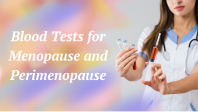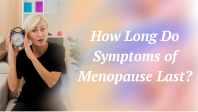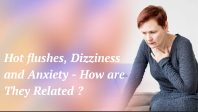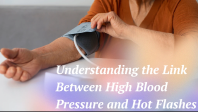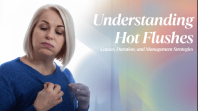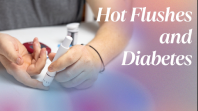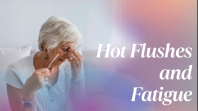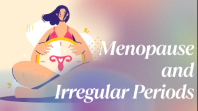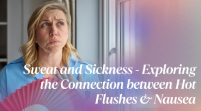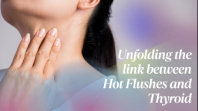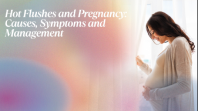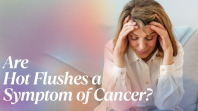Hot Flushes and Dizziness: The Surprising Link Between Them
October 20, 2024

Hot flashes and dizziness are symptoms that frequently occur together and are often associated with hormonal changes, metabolic shifts, or lifestyle factors. These sensations can happen during menopause, pregnancy, or menstrual cycles, but they can also affect people outside of these situations. While they are usually not harmful, they can interfere with daily activities and may signal underlying issues such as dehydration, low blood sugar, or anxiety. Recognizing the causes and managing triggers like stress, poor sleep, or diet can help effectively reduce these symptoms. For cases that are persistent or severe, it is important to consult a healthcare provider to rule out any serious conditions.
What Causes Dizziness During Menopause?
Dizziness during menopause can be attributed to hormonal fluctuations, metabolic changes, and the aging process. The main causes include:
1. Hormonal Changes and Dizziness During Menopause
- Inner Ear Impact: Lower estrogen levels may disrupt balance, increasing the likelihood of vertigo.
- Brain & Cardiovascular Effects: A decrease in estrogen can affect brain function and blood circulation, leading to feelings of dizziness.
Metabolic Changes:
- The decline in estrogen can disrupt glucose regulation, resulting in fatigue, low energy, and dizziness due to unstable blood sugar levels.
Cardiovascular Changes:
- Hormonal fluctuations can lead to heart palpitations, elevated blood pressure, and reduced oxygen supply to the brain, which can trigger dizziness.
Aging:
- As we age, inner ear degeneration and less flexible blood vessels can contribute to balance issues and higher blood pressure.
Sleep Disturbances:
- Insomnia caused by hot flashes, night sweats, or mood swings can exacerbate fatigue and dizziness.
Mental Health:
- Anxiety and depression, which are often experienced during menopause, can trigger stress responses such as hyperventilation, resulting in feelings of lightheadedness.
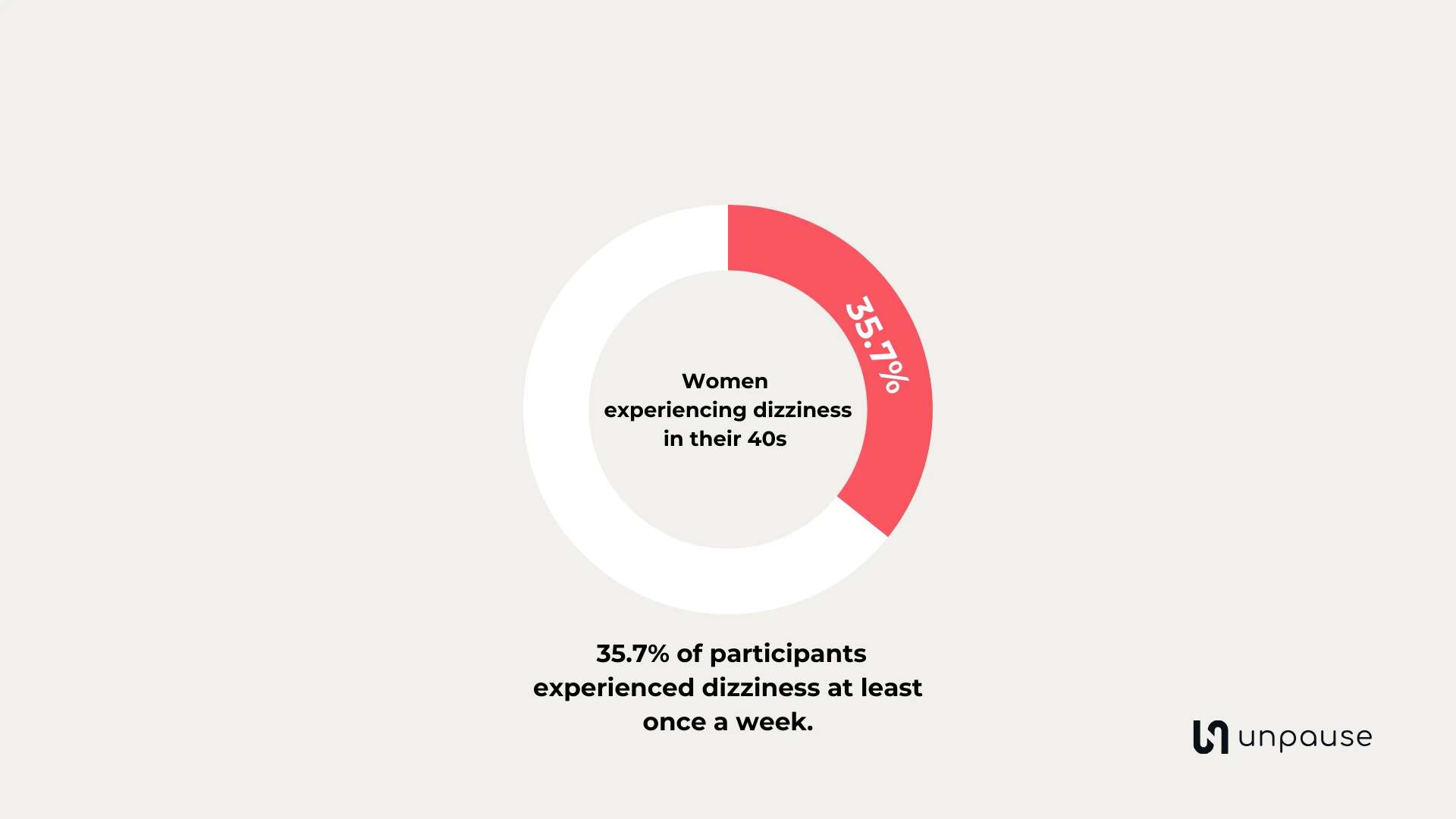
How Common Is Dizziness During Menopause?
A study conducted in Japan in 2018 revealed that 35.7% of women aged 40-65 reported experiencing dizziness on a weekly basis. Factors such as hormonal changes, lifestyle, age, and mental health play a significant role in this symptom during menopause.
Hot Flashes and Dizziness: What Do They Indicate?
Hot flashes and dizziness can arise from a variety of factors, including hormonal fluctuations and environmental influences. For women, these sensations are frequently linked to menopause, pregnancy, or menstrual cycles. However, men can also experience these symptoms, which may not necessarily be tied to hormonal changes.
Common Scenarios Where Hot Flashes and Dizziness Occur
1. Sudden Hot Flashes, Nausea, and Dizziness in Females
Women frequently face sudden hot flashes accompanied by nausea and dizziness, especially during hormonal changes such as perimenopause or pregnancy. Factors like dehydration, low blood sugar, or stress can worsen these symptoms.
2. Sudden Hot Flashes, Nausea, and Dizziness (Not Menopause)
If menopause isn't the reason, sudden hot flashes along with nausea and dizziness might be caused by:
- Low blood pressure.
- Thyroid issues.
- Anxiety or panic attacks.
- Food intolerances.
3. Dizzy and Hot All of a Sudden
Feeling dizzy and hot unexpectedly could suggest:
- Heat exhaustion from a warm environment.
- Dehydration.
- A drop in blood sugar.
- A panic attack.
To help prevent these sudden occurrences, focus on staying hydrated, eating balanced meals, and avoiding excessive exertion in hot conditions.
4. Hot Flashes and Dizziness in Males
Although hot flashes are typically linked to women, men can experience them as well. In males, hot flashes and dizziness may be due to:
- Low testosterone levels (andropause).
- Anxiety or stress.
- Side effects from medications.
5. Sudden Hot Flashes, Nausea, Dizziness, and Headaches
Experiencing all these symptoms at once can be quite distressing. Possible causes include:
- Migraine attacks.
- Low blood sugar or skipping meals.
- Heatstroke or extended exposure to high temperatures.
Dizziness accompanied by sudden sweating can indicate:
- Hypoglycemia (low blood sugar).
- Hormonal changes during menopause or pregnancy.
- Anxiety attacks.
If these symptoms happen often or are intense, they need immediate attention.
Natural Remedies for Dizziness During Menopause
For women experiencing menopause, natural remedies can help alleviate dizziness, hot flashes, and other related symptoms:
- Stay Hydrated: Aim for at least 8 glasses of water each day.
- Eat Nutrient-Rich Foods: Incorporate magnesium-rich foods such as nuts, leafy greens, and whole grains.
- Try Herbal Remedies: Black cohosh, ginseng, and red clover may help lessen hot flashes.
- Practice Breathing Exercises: Deep breathing can reduce stress and enhance oxygen flow.
- Maintain a Cool Environment: Use fans or cooling packs to help lower body temperature.
Why Do I Feel Hot, Dizzy, and Nauseous All of a Sudden?
Experiencing sudden feelings of heat, dizziness, and nausea can be due to:
- Abrupt drops in blood pressure.
- Dehydration or heat exhaustion.
- Panic or anxiety attacks.
- Vertigo stemming from inner ear problems.
When to See a Doctor for Dizziness During Menopause
While occasional dizziness is common, you should seek medical attention if you experience:
- Frequent or severe dizziness
- Fainting spells
- Persistent balance issues
- Dizziness accompanied by chest pain, shortness of breath, or blurred vision
These symptoms may indicate an underlying condition requiring immediate medical intervention.
Final Thoughts
Recognizing the reasons behind hot flashes and dizziness—whether they affect women, men, or arise from specific triggers like eating or hormonal shifts—can help you take appropriate measures for relief. Utilizing natural remedies for dizziness during menopause, staying well-hydrated, and managing stress are effective strategies to ease symptoms.
If symptoms continue, it's advisable to see a doctor to rule out any underlying issues and discuss personalized treatment options.

